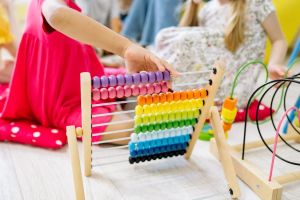How to Balance Study and Play While Preparing for SIP Prodigy

As a parent, you want your child to do well in competitive exams like SIP Prodigy. But you also know that all work and no play can lead to burnout. The key is striking the right balance between focused studies and rejuvenating recreation. Here’s how you can help your child prepare effectively for SIP Prodigy while still having fun and learning through play.
Understanding SIP Prodigy
SIP Prodigy is the flagship competition organized by SIP Abacus, one of India’s best programme for abacus and mental arithmetic training. It gives students a chance to showcase their calculation skills at regional, national and international levels. The exam tests speed and accuracy in solving up to 300 arithmetic problems using abacus, mental math and other techniques in just 11 minutes.
Participating in SIP Prodigy offers many benefits for a child’s cognitive development. It benchmarks their abilities against peers, builds confidence, enhances concentration and logical thinking. Alumni often return to volunteer and relive the excitement. With meticulous planning and evaluation, SIP Prodigy is a holistic growth experience that leaves participants with lifelong memories.
Effective Study Tips for Kids Preparing for SIP Prodigy
While consistent practice is crucial for acing SIP Prodigy, studying smart is as important as studying hard. Here are some proven study tips for kids:
-
Practice with purpose: Don’t just mechanically solve sums. Analyze patterns, understand concepts, and focus on areas that need improvement. Reflect on mistakes.
-
Create a study schedule: Block dedicated study time slots for SIP Prodigy preparation. Stick to the schedule but keep some flexibility. Short, frequent sessions work better than long marathons.
-
Solve previous papers: Regularly attempt past Prodigy question papers under simulated exam conditions. This will boost speed, accuracy and confidence. Analyze performance and bridge gaps.
-
Leverage SIP resources: Attend special classes at your SIP Abacus center. Use the practice materials, mock tests and strategies they provide. Clear doubts promptly with teachers.
-
Set realistic goals: Aiming too high can be demoralizing. Break your ultimate target into smaller milestones. Celebrate each little victory to stay motivated.
-
Sleep and eat well: Good rest and nutrition are vital for the brain to perform at its peak. Don’t compromise on sleep, especially on exam day. Have a balanced diet with ample fruits and vegetables.
Tips for Balancing Study and Play
|
Tip |
Description |
Benefits |
|---|---|---|
|
Create a Study Schedule |
Develop a structured timetable that allocates specific times for studying and breaks for play. |
Helps maintain focus during study sessions and ensures adequate relaxation. |
|
Set Clear Goals |
Establish short-term and long-term goals for both study and play, such as completing practice papers or enjoying outdoor activities. |
Provides motivation and direction, making both study and play more purposeful. |
|
Incorporate Breaks |
Use techniques like the Pomodoro Technique (25 minutes of focused work followed by a 5-minute break) to enhance productivity. |
Increases efficiency in studying while preventing burnout. |
|
Prioritize Tasks |
Identify the most important tasks to complete each week, focusing on high-impact study activities first. |
Ensures that essential study goals are met while allowing time for enjoyable activities. |
|
Engage in Active Play |
Choose physical activities or sports that require mental engagement, such as team sports or strategy games. |
Promotes physical health while enhancing cognitive skills relevant to mental math. |
|
Limit Distractions |
Create a dedicated study space free from distractions such as mobile phones or television during study times. |
Enhances concentration and effectiveness of study sessions, allowing for more leisure time later. |
|
Stay Flexible |
Allow room for adjustments in the schedule to accommodate unexpected events or opportunities for play. |
Reduces stress and helps maintain a positive attitude towards both studying and leisure. |
|
Reflect on Progress |
Regularly assess what has been learned and how much playtime has been enjoyed, adjusting the balance as needed. |
Encourages self-awareness and helps maintain an effective balance between study and play. |
Making Time for Play
All study and no play can dull anybody. Leisure is not a luxury but a necessity for kids. Engaging in fun activities reduces stress, recharges the mind and keeps the creative juices flowing. Here’s how to make room for play:
-
Unplug from devices: Limit screen time and encourage outdoor physical games, sports and free play. Exercise is a great stress-buster.
-
Pursue hobbies: Allot time daily for your child to enjoy music, art, reading or whatever interests them. Hobbies enrich life and boost self-esteem.
-
Have fun family time: Bond over board games, nature walks, cooking, gardening. Shared laughter and chatter relax the mind and build support.
-
Enjoy learning: Make study time itself more playful occasionally. Quiz, puzzles, math games, mnemonic songs – get creative to keep the joy of learning alive.
-
Take breaks: After every 45-60 minute study session, take a 10-15 minute break. Go for a snack, listen to music, play or just relax. This improves focus and retention.
Remember, play is not a waste of time. It is an investment in your child’s overall growth and well-being. As the famous mathematician Ramanujan said, “It is not about how much you know. It is about how much you are willing to learn.”
Keeping Calm and Confident
Exams can be stressful for both kids and parents. But staying positive is half the battle won. Here are some tips to help your child keep exam anxiety at bay:
-
Encourage a growth mindset: Instill in your child that their abilities can always improve with effort. Talent matters less than hard work and perseverance.
-
Focus on progress: Instead of obsessing over outcomes, appreciate the learning process. Praise your child’s efforts rather than just results. Every mistake is a stepping stone to mastery.
-
Manage your own anxiety: Children often absorb their parents’ stress. Avoid piling unrealistic expectations. Provide unconditional love and support irrespective of exam performance.
-
Practice relaxation: Deep breathing, meditation, yoga and soothing music can help your child stay centered. Encourage them to consciously relax whenever they feel overwhelmed.
-
Visualize success: Teach your child to imagine themselves solving the paper calmly and confidently. Positive visualization boosts self-belief and regulates nerves.
With the right preparation, self-care and mindset, SIP Prodigy can be an enjoyable learning opportunity rather than an ordeal. Make it a fun challenge for your child to look forward to.
Summing Up:
Abacus is a proven tool to build a strong foundation in mathematics and sharpen mental skills. SIP Prodigy gives your child an exciting platform to test those skills and aim higher. But the key is balancing study with play.
Help your child create a smart study plan, take regular breaks, pursue hobbies and stay relaxed. Learning through play keeps them engaged and energized to give their best. With your loving guidance, they will not only excel in SIP Prodigy but also grow into well-rounded individuals. If you haven’t already, consider enrolling your child in SIP Abacus. It could be the best investment you make in their future. Happy learning and happy playing!
FAQs:
-
How much time should my child practice for SIP Prodigy daily?
Aim for 1-2 hours of focused practice every day, broken into shorter sessions of 30-45 minutes each. Consistency matters more than cramming. -
Will too much play distract my child from exam preparation?
Not if you plan it well. Adequate play and leisure are essential for a child’s creativity, self-esteem and stress relief. It actually improves their learning ability. -
How can I make abacus practice more fun for my child?
Turn it into a game! Race against the clock, challenge each other, reward progress. You can also weave in abacus concepts during play time, like counting beads while making necklaces.



